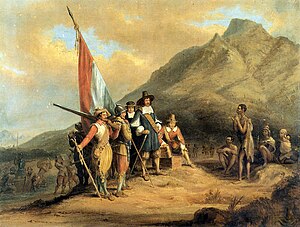
Back 1652 Abkhazian 1652 Afrikaans 1652 ALS 1652 እ.ኤ.አ. Amharic 1652 AN 1652 Arabic 1652 ARY 1652 ARZ 1652 AST 1652 AVK
| Millennium: | 2nd millennium |
|---|---|
| Centuries: | |
| Decades: | |
| Years: |

| 1652 by topic |
|---|
| Arts and science |
| Leaders |
| Birth and death categories |
| Births – Deaths |
| Establishments and disestablishments categories |
| Establishments – Disestablishments |
| Works category |
| Gregorian calendar | 1652 MDCLII |
| Ab urbe condita | 2405 |
| Armenian calendar | 1101 ԹՎ ՌՃԱ |
| Assyrian calendar | 6402 |
| Balinese saka calendar | 1573–1574 |
| Bengali calendar | 1058–1059 |
| Berber calendar | 2602 |
| English Regnal year | 3 Cha. 2 – 4 Cha. 2 (Interregnum) |
| Buddhist calendar | 2196 |
| Burmese calendar | 1014 |
| Byzantine calendar | 7160–7161 |
| Chinese calendar | 辛卯年 (Metal Rabbit) 4349 or 4142 — to — 壬辰年 (Water Dragon) 4350 or 4143 |
| Coptic calendar | 1368–1369 |
| Discordian calendar | 2818 |
| Ethiopian calendar | 1644–1645 |
| Hebrew calendar | 5412–5413 |
| Hindu calendars | |
| - Vikram Samvat | 1708–1709 |
| - Shaka Samvat | 1573–1574 |
| - Kali Yuga | 4752–4753 |
| Holocene calendar | 11652 |
| Igbo calendar | 652–653 |
| Iranian calendar | 1030–1031 |
| Islamic calendar | 1062–1063 |
| Japanese calendar | Keian 5 / Jōō 1 (承応元年) |
| Javanese calendar | 1573–1574 |
| Julian calendar | Gregorian minus 10 days |
| Korean calendar | 3985 |
| Minguo calendar | 260 before ROC 民前260年 |
| Nanakshahi calendar | 184 |
| Thai solar calendar | 2194–2195 |
| Tibetan calendar | 阴金兔年 (female Iron-Rabbit) 1778 or 1397 or 625 — to — 阳水龙年 (male Water-Dragon) 1779 or 1398 or 626 |
1652 (MDCLII) was a leap year starting on Monday of the Gregorian calendar and a leap year starting on Thursday of the Julian calendar, the 1652nd year of the Common Era (CE) and Anno Domini (AD) designations, the 652nd year of the 2nd millennium, the 52nd year of the 17th century, and the 3rd year of the 1650s decade. As of the start of 1652, the Gregorian calendar was 10 days ahead of the Julian calendar, which remained in localized use until 1923.